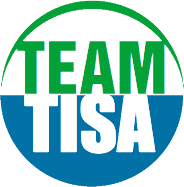TiSA Precursor: The GATS
The General Agreement on Trade in Services, or GATS, is an agreement made by the members of the WTO to create a system of international trade rules for services. Because no tangible products are exchanged in the services trade, the barriers to trade and necessary regulations are different for the services trade than for the goods trade, and so a separate agreement was needed to cover these areas. The GATS entered into force in January 1995.
Modes of Supply
The GATS applies to all modes of service supply: cross-border supply, consumption abroad, commercial presence, and presence of natural persons. Much of the international trade in services is provided when the supplier or consumer travels to another country, or when a service provider establishes a business in another country, so additional rules were enacted to cover these situations.
Obligations under the GATS
The GATS includes both general obligations, which apply to all members and service sectors, and specific commitments, with individual country schedules of varying scope.
General obligations
GATS members are all accorded Most Favored Nation status in all other GATS nations, meaning that no country may receive preferential treatment. In addition, GATS members are required to publish their rules for the services trade, to respond to other GATS members’ requests for information, and to establish procedures for appeals.
Specific commitments
A goal of the GATS is to improve market access for services among GATS members. However, some limitations are allowed under the agreement, including limits on the number of services suppliers, the value of transactions, and the participation of foreign capital.
Another commitment involves national treatment, the principle that the state does not differentiate between imported services and like domestic services.
Limits of the GATS
The GATS was only intended to be the first step in services trade liberalization, and experts agree that its effects have been relatively modest. The importance of the services trade has continued to rise, particularly in developed economies, and new technologies are outside the scope of the GATS. Currently-in-progress agreements, such as the Trade in Services Agreement (TiSA) seek to remedy these limitations and provide increased opportunities for the growth of international trade in services.
